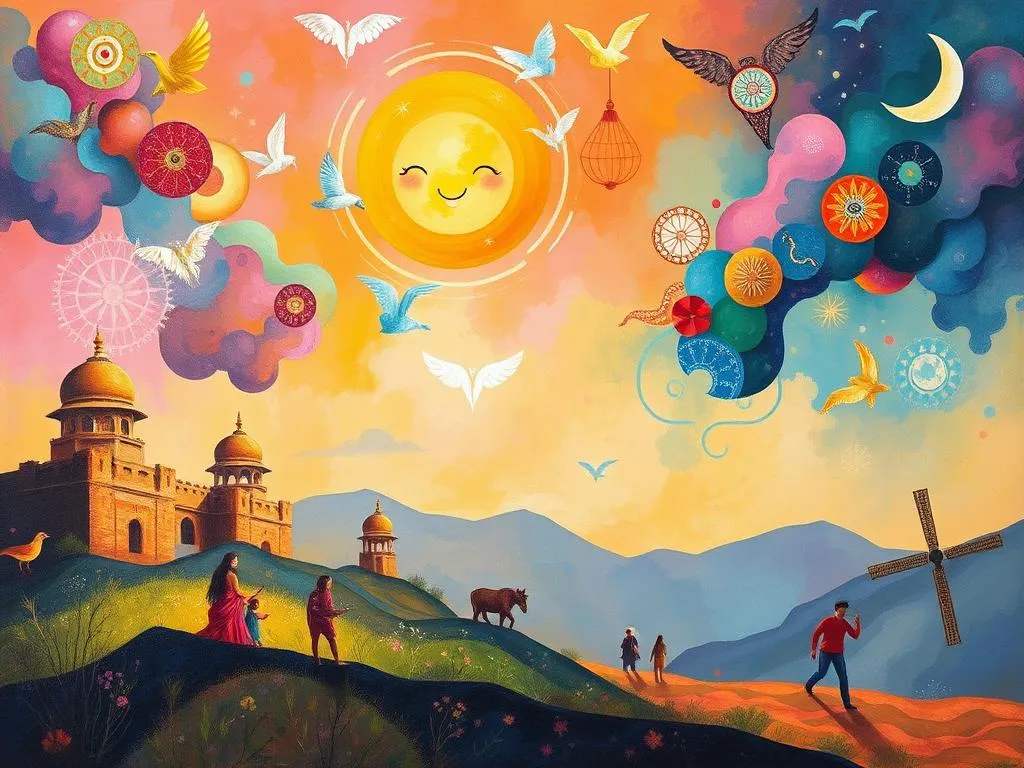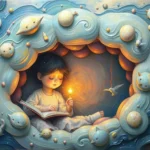
Introduction
Dreams have long fascinated humanity, serving as a bridge between our conscious and unconscious minds. They provide a window into our inner thoughts, fears, desires, and cultural narratives. Among the myriad of dream interpretations, those that reflect the rich tapestry of Indian culture are particularly intriguing. Dreams that incorporate elements of the Indian subcontinent—its landscapes, traditions, and spiritual symbolism—invite us to explore deeper meanings tied to our personal experiences and collective consciousness. In this article, we will embark on a journey to uncover the symbolism embedded in dreams related to India, shedding light on their relevance and inviting personal reflection.
Symbolism and Meaning
When we dream of India, a land known for its vibrant culture, diverse landscapes, and spiritual significance, various symbols may emerge, each carrying a unique meaning. Common elements include temples, animals, festivals, and traditional attire.
Temples, for instance, often symbolize the search for spiritual enlightenment or a desire for connection with the divine. Dreaming of a temple could signify a longing for deeper understanding or a need to reconnect with your spiritual roots. Alternatively, it might represent a quest for peace and tranquility amidst the chaos of daily life.
Animals hold a significant place within Indian culture, often representing different qualities or characteristics. For example, dreaming of a cow could symbolize nourishment and abundance, as cows are revered in India for their contributions to agriculture and dairy. This dream might indicate a need for grounding or a reminder to appreciate the simple pleasures in life. On the other hand, encountering a tiger in a dream could signify strength, courage, and primal instincts. This might suggest that you are tapping into your own inner strength to overcome challenges.
Festivals are another potent symbol in dreams connected to India. Events like Diwali, Holi, or Durga Puja are not just celebrations but also signify renewal, joy, and community bonding. A dream involving a festival may indicate a time of personal transformation, where you are ready to embrace new beginnings or rekindle relationships with family and friends. Furthermore, the colors and rituals associated with these festivals can reflect your emotions and current state of mind, prompting you to explore what aspects of your life need celebration or healing.
Traditional attire, such as a sari or kurta, can also emerge in dreams, reflecting one’s identity, cultural heritage, and personal values. Wearing a sari might symbolize femininity, grace, and cultural pride, while a kurta could represent comfort and a connection to one’s roots. This dream may prompt you to examine your relationship with your heritage or explore how your identity influences your choices and relationships.
Dreams incorporating these symbols often serve as a call to reflect on our connection to culture, spirituality, and personal growth. They encourage us to delve deeper into our inner selves, exploring the rich narratives that shape our lives.
Key Scenarios and Variations
The context of a dream can significantly alter its interpretation, and dreams centered around India are no exception. Consider the following variations:
-
Traveling through India: If you dream of embarking on a journey through India, visiting various cities or landscapes, it may symbolize a quest for self-discovery. This journey may reflect your desire to explore different facets of your personality or your yearning for adventure. The specific locations you visit can provide further insight—visiting the Himalayas might indicate a quest for spiritual elevation, while exploring the backwaters of Kerala could represent a need for relaxation and introspection.
-
Participating in a festival: Dreaming of actively participating in a vibrant Indian festival can highlight your desire for connection and celebration. It may indicate a need to embrace joy and community in your life. However, if the dream feels chaotic or overwhelming, it could signify feelings of being lost in the crowd or needing to reclaim your individuality within a communal setting.
-
Encounters with spiritual figures: Meeting a guru or spiritual guide in your dream can signify a deepening connection to your spirituality. This figure might represent your own inner wisdom urging you to seek guidance or explore new paths in life. Alternatively, if the figure is intimidating, it might suggest fears related to your spiritual journey or feelings of unworthiness.
-
Cultural conflicts: Dreams that involve navigating cultural differences or conflicts may reflect your own struggles with identity or acceptance. If you find yourself in a situation where traditional values clash with modern beliefs, it may indicate an internal battle regarding your own values and how they align with societal expectations. This dream scenario invites you to examine your beliefs and how they shape your interactions with others.
-
Nature and landscapes: Encountering the diverse landscapes of India—be it lush forests, serene rivers, or arid deserts—can also reflect your emotional state. A dream of wandering through the Western Ghats may symbolize a journey through the complexities of your emotions, while a trek in the Thar Desert might indicate feelings of isolation or the need for clarity amidst confusion.
Each of these scenarios invites personal reflection, encouraging the dreamer to explore how their experiences shape their interpretations. The beauty of dreams lies in their unique narratives, which can resonate differently with each individual.
Real-Life Connections and Takeaways
As we navigate the symbolic landscape of dreams related to India, it becomes essential to connect these insights to our real-life situations. Dreams often serve as mirrors, reflecting our thoughts, emotions, and experiences. Here are some practical steps for self-reflection:
Begin by journaling your dreams upon waking. Write down the symbols, emotions, and scenarios that stood out to you. Over time, you may begin to notice patterns that reveal your subconscious concerns and desires. Reflect on how these dreams connect to your current life circumstances. Are there areas where you feel a lack of fulfillment, joy, or connection?
Consider exploring your cultural heritage. If you dream of India, it might be an invitation to delve into your roots, whether through learning about traditions, engaging with family stories, or simply embracing aspects of your culture in daily life. This exploration can foster a sense of belonging and identity, enhancing your overall well-being.
Embrace the lessons from your dreams. If you find yourself on a journey in your dreams, take it as a prompt to embark on a new adventure in your waking life. Whether it’s trying a new hobby, traveling, or stepping outside your comfort zone, these experiences can lead to personal growth and fulfillment.
Lastly, engage in mindfulness practices. Meditation, yoga, or spending time in nature can help you connect with the deeper meanings of your dreams. These practices allow for introspection, facilitating a conversation with your inner self.
In summary, dreams that explore the symbolism of India invite a profound exploration of personal identity, cultural connections, and spiritual journeys. By reflecting on these dreams and their meanings, we can uncover valuable insights that guide us in our waking lives.
In conclusion, the journey through the subcontinent of India in our dreams is more than just a fascinating exploration of symbolism; it is an invitation to understand ourselves on a deeper level. As we engage with the rich tapestry of imagery and emotion presented in our dreams, we open ourselves to a world of self-discovery and transformation. The next time you find yourself wandering through the vibrant landscapes of India in your dreams, take a moment to reflect on what these experiences reveal about your inner self and the path you wish to follow in your waking life.







